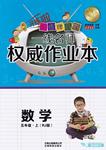题目内容
【题目】__________ the necessary materials, I decided to __________ the house repairs.
A. Had bought; stick to
B. Buying; devote to
C. Having bought; get down to
D. To buy; look forward to
【答案】C
【解析】句意:买了所需的材料后,我决定开始进行房屋修缮。第一空buy的动作与句子主语之间是主谓关系,且动作发生在decided之前,故用现在分词的完成式;第二空get down to 意为“开始做,着手做”,符合句意,而stick to 意为“坚持,坚守”,devote to 意为“奉献,致力于”,look forward to 意为“盼望”,都不符合句意。

练习册系列答案
 一线名师权威作业本系列答案
一线名师权威作业本系列答案
相关题目